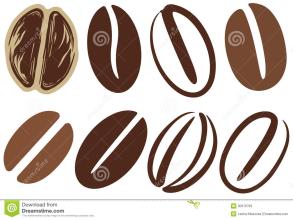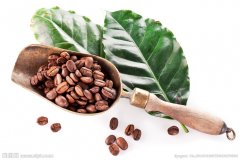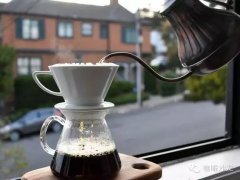Arabica Coffee Filter Pot Kalita Filter Cup Coffee Cherry
Boutique coffee (specialty coffee) is also called "specialty coffee" or "select coffee". It refers to coffee made from a small number of raw beans with excellent taste grown in an ideal geographical environment. Depending on the special soil and climatic conditions in which they grow, they have outstanding flavor. After strict selection and classification, this kind of coffee can be regarded as a selection of coffee beans because of its hard texture, rich taste and excellent flavor.

Arabica coffee: one of the three original varieties of coffee, the other two are Robusta and Liberika. Among the three original species, Arabica has the best quality, but it is also the most susceptible to Fusarium wilt during cultivation. Mainly planted in the plateau areas of South America, America and Asia.
Chen Dou: raw coffee beans that have been stored for about 3 years after picking. Low water content, also known as old coffee beans, old coffee beans and so on.
Pure coffee: coffee brewed from a single kind of coffee beans.
Large and full: a marking of coffee specifications led by African native coffee beans. It means large and full high-quality coffee beans.
Tannin (Tannin): commonly known as "tannin acid", to put it simply, it is the source of the astringency of coffee. The production of tannins will be particularly significant when the extraction is excessive. Tannins can promote gastric juice secretion and eliminate free radicals.
Flavor detection: a flavor test that identifies the quality of coffee, and the appraiser is called a flavor tester.
Non-washed coffee beans: coffee beans processed by natural drying of the sun. Also known as natural coffee beans.
Flavored coffee: coffee with a variety of different flavors, which also refers to coffee with a partner.
Colombian coffee beans: a general term for 3 domestic coffee beans from Colombia, Tanzania and Kenya. High quality washed Arabica coffee beans. A method of classification of origin in the international market for coffee.
Nutty: coffee taste term. The aroma of roasted coffee beans.
Hand pick: the job of selecting coffee beans by hand.
Dutch coffee: a kind of dripping coffee. Pour water into the finely ground coffee powder and extract slowly. The coffee extraction method invented by the Indonesians in the Dutch colonial era is called Dutch coffee.
Roasting: the process of roasting coffee, also known as fried roasting.
Roaster: a roaster is a machine for roasting coffee beans. A roaster refers to the roasting staff of coffee beans.
Red wine taste: coffee taste language. Similar to the flavor of red wine.
Siphon pot: a tool for extracting coffee by air pressure invented by British technician Robert Napier in 1940.
Mixed coffee: coffee brewed from a mixture of various coffee beans.
Processing: the process of extracting coffee beans from coffee fruit. Remove the outer skin, pulp, endocarp, silver peel, etc. There are mainly two processing methods: washing type and natural drying type.
Boutique coffee: high-quality coffee beans grown in an ideal environment with its native flavor. There are boutique coffee associations in all countries, and there is no strict definition of boutique coffee.
Caramelization tester (Agtron): this is the baking degree index used in the United States. The baking degree is expressed by the value of "baking degree is about Agtron 50" from the shallowest 100 to the deepest 25. The determination is based on a characteristic difference instrument called Agtron M-Basic.
Coffee filter pot: a circular coffee extraction tool originated in the United States. Easy to operate and often used outdoors.
Coffee skin: the name of a coffee endocarp compared to parchment. Coffee beans with coffee skins are called parchment coffee beans when dried. The adhesion of the coffee skin will not have much effect on the flavor of the coffee, and the taste of the shelled coffee bean is mellow. In some places, coffee beans with coffee skins can also be traded.
Barista: a professional service staff in a coffee shop. In Japan, the Japan Fine Coffee Association operates a barista qualification system aimed at its members.
Coffee substitute: a drink made of ingredients other than coffee that tastes similar to coffee. During the war, alternative drinks for coffee were made from soybeans, lily roots, chestnuts and shrubs. The most common is "dandelion coffee", which is a healthy drink made from the dried roots of dandelion. Another kind is "black bean coffee", which is made from roasted black beans, which is very effective in treating stiff shoulders and cold syndrome.
Caffeine (Caffein): a bitter alkaloid found in plants. In addition to coffee, tea also contains caffeine. It mainly has the functions of exciting, diuretic, cardiotonic and so on. The caffeine intake is oxidized and converted into uric acid in the body, which is conducive to excretion.
Coffee cherry: the fruit of coffee that is red when ripe and named because it looks like a cherry.
Coffee planting belt: between the equator and the Tropic of Cancer, the area suitable for coffee cultivation (roughly between latitude 25 °north and latitude 25 °south) is also known as the coffee planting area.
Cariomon: a traditional custom of coffee held in Ethiopia similar to the Japanese tea ceremony. Also known as the coffee celebration.
Kalita filter cup: a commonly used representative filter cup. There are three filters at the bottom, which are not easy to be blocked to ensure the smooth progress of coffee extraction. In addition, the single-hole filter cup with only one filter at the bottom is invented by Mrs. Melita in Germany, which is called Melita Cup. Coffee powder is used to serve coffee for a few people. The two tastes are compared.
Cocoa: dried coffee fruit. A defective bean that is mixed with cocoa coffee and produces a bad smell when brewed. Cocoa means excrement.
Fusarium wilt: the disease name of coffee leaves. The infection rate is high. Sri Lanka has switched to black tea because of Fusarium wilt of coffee. Plum rain season is frequent, the cause is mainly attached to the coffee leaves, and then spread.
Liberian coffee: one of the three original varieties of coffee. Liberica coffee native to western Africa having larger fruit than Arabica and Robusta. Mainly planted in lowland, strong adaptability to the environment, should not be infected with diseases and insect pests. The bitter taste is rich, with a diamond at the top. Today, it is only grown in some areas such as Liberia and Suriname.
Filter cloth: a filter cloth used in a follicle instead of filter paper. The method of coffee extraction using filter cloth is called follicular type. This extraction method can fully extract the unique flavor of coffee.
Important Notice :
前街咖啡 FrontStreet Coffee has moved to new addredd:
FrontStreet Coffee Address: 315,Donghua East Road,GuangZhou
Tel:020 38364473
- Prev

The effect of temperature on coffee taste how to make coffee college boutique caffeine
People's tongues, noses, and receptors for different tastes also have different receptivity at different temperatures. Sour things will be more peaceful at high temperatures (such as Hot Lemon Tea). If you drink some single coffee, which is mainly sour, you will find that the hot coffee is not sour when drinking, but feels very sour when it gets cold, that is, the decrease in temperature affects us.
- Next

Six elements in the selection of raw coffee beans Arabica special coffee spelling with water washing treatment
Boutique coffee (specialty coffee) is also called specialty coffee selection coffee. It refers to coffee made from a small number of raw beans with excellent taste grown in an ideal geographical environment. Depending on the special soil and climatic conditions in which they grow, they have outstanding flavor. After strict selection and classification, this kind of coffee is hard in texture, rich in taste and stylish.
Related
- Beginners will see the "Coffee pull flower" guide!
- What is the difference between ice blog purified milk and ordinary milk coffee?
- Why is the Philippines the largest producer of crops in Liberia?
- For coffee extraction, should the fine powder be retained?
- How does extracted espresso fill pressed powder? How much strength does it take to press the powder?
- How to make jasmine cold extract coffee? Is the jasmine + latte good?
- Will this little toy really make the coffee taste better? How does Lily Drip affect coffee extraction?
- Will the action of slapping the filter cup also affect coffee extraction?
- What's the difference between powder-to-water ratio and powder-to-liquid ratio?
- What is the Ethiopian local species? What does it have to do with Heirloom native species?

